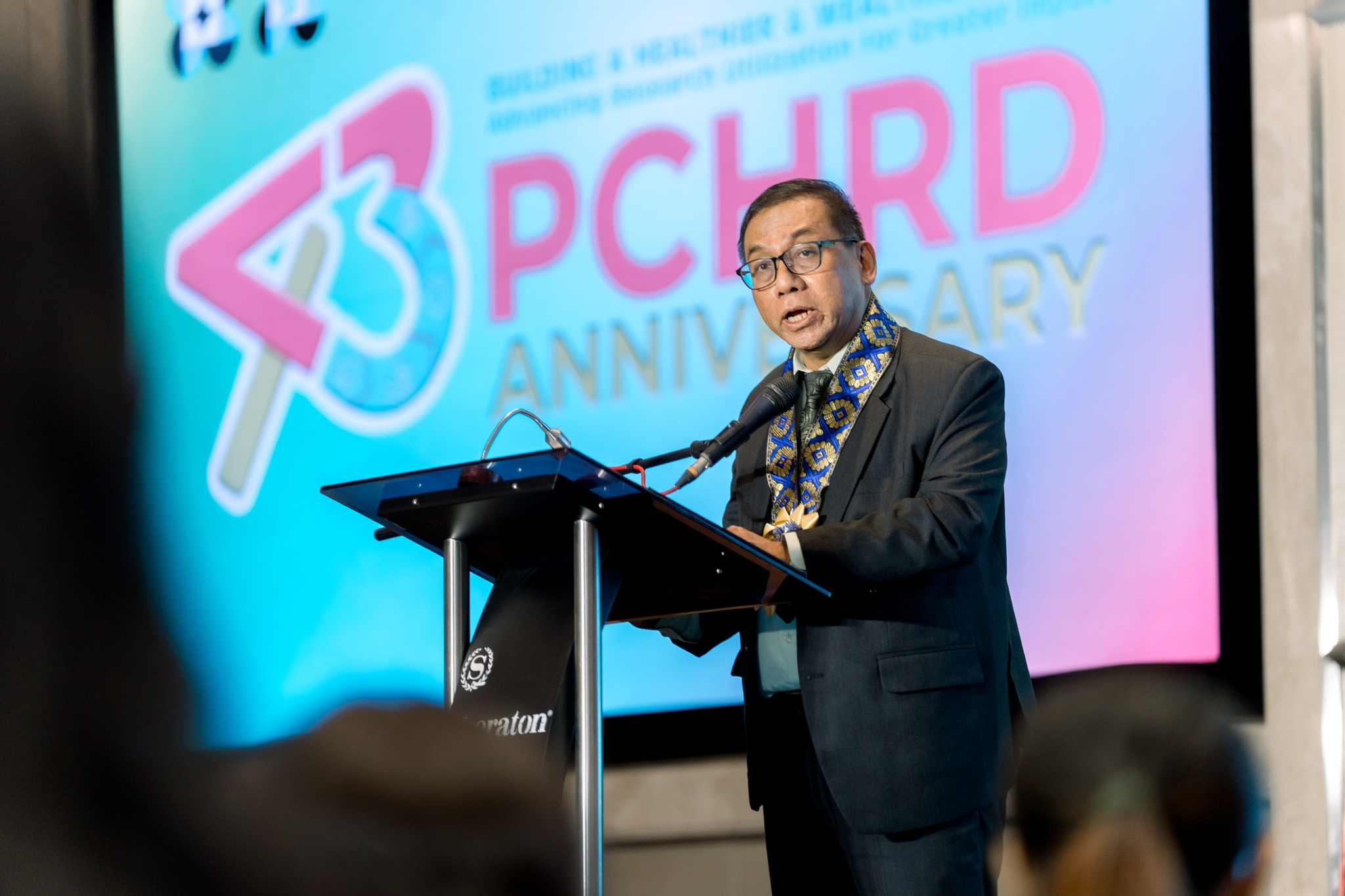NEWS AND UPDATES
PCHRD@43: DOST commits to support translation of research into health solutions

Department of Science and Technology (DOST) Secretary Dr. Renato U. Solidum, Jr. strongly advocated for strengthening research utilization of Filipino-developed health solutions during the 43rd DOST Philippine Council for Health Research and Development (DOST-PCHRD) Anniversary celebration on 17 March 2025 in Pasay City.
“Let us build on the utilization and commercialization of scientific and medical discoveries, ensuring that the knowledge and wisdom we create becomes a force for national progress and prosperity,” said DOST Secretary Solidum in his message to the DOST-PCHRD and its stakeholders.
Bannering the theme, “Building a Healthier and Wealthier Future: Advancing Research Utilization for Greater Impact,” the DOST-PCHRD highlighted the critical importance of effectively translating research findings into practical applications that can improve health outcomes in the country.
As the national coordinating body for health research in the country, the DOST-PCHRD has led initiatives to enable the utilization of research outputs by Filipino researchers. The Council’s programs towards this thrust include support for research dissemination and publication, assistance for commercialization and adoption of health technologies and innovations, as well as assistance for the translation of research results into evidence-based health policies.
“For over four decades, the DOST-PCHRD has worked tirelessly with researchers and institutions to bridge the gap between innovation and action, ensuring that discoveries lead to impactful change,” said DOST-PCHRD Executive Director Dr. Jaime Montoya, emphasizing the Council’s commitment to research utilization.
In his report to stakeholders, Dr. Montoya shared the latest progress in the Council’s research utilization programs. In 2024, the Council provided over Php 28.9 million in funding support for technology transfer initiatives, over Php 4 million for support to research dissemination, and over Php 3 million for support to policy translation of research.
Research utilization as a shared responsibility
Recognizing the obstacles in successfully transforming research into real-world health solutions, DOST Sec. Solidum stressed that utilization is a shared responsibility. “Policymakers, researchers, industry leaders, technology generators, and entrepreneurs must work together to create a system where scientific and medical discoveries fulfill their purpose to improve lives” he said.
In this mission, he reminded stakeholders to also be guided by the DOST strategic pillars focusing on promoting human well-being, fostering wealth creation, reinforcing wealth protection, and institutionalizing sustainability. Integrating these in the health research community’s work enables holistic progress, according to Sec. Solidum.
In his keynote message, Department of Health Secretary Dr. Teodora Herbosa also recognized the challenges mentioned by the DOST Secretary. “Bridging the gap between research and implementation requires stronger collaboration among government agencies, academia, the private sector, and healthcare providers,” said Sec. Herbosa.
“Strengthening our evidence-based decision making will enhance our health programs and optimize resource allocation for better patient care,” he added, calling on fellow decision makers to make research more accessible and actionable.
The rest of the celebration continued to put the spotlight on research utilization with a plenary discussion that focused on discussing existing policies, strategies, and gaps on effectively linking research outputs to tangible benefits. Representatives from key stakeholders such as DOH, Food and Drug Administration (FDA), and the Philippine Chamber of Commerce and Industry (PCCI) shared their insights during the discussion.
Also featured are winners of the Gelia Castillo Award for Research on Social Innovations in Health, Capture the Heart in Health Research Photo Contest, and newly-accredited Research Ethics Committees. This was followed by a health policy forum and assemblies of the Philippine Association of Medical Journal Editors (PAMJE) and the PCHRD Scholars’ Society (PSS).




